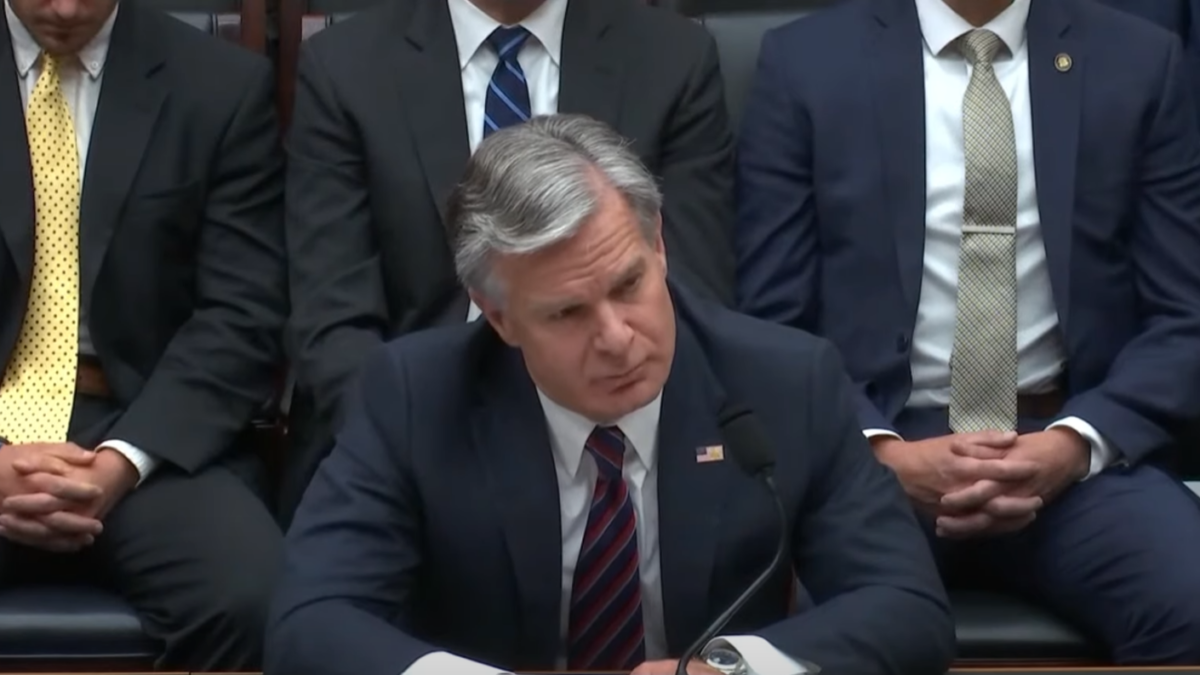
While Lt. Gen. Michael Flynn’s three-year ordeal fighting the Deep State is nearing an end, the civilian cast as his paramour and a Russian “honey pot” in the plot to take down the Trump advisor and, in turn, the president, continues to fight for justice. Now that fight moves on to the Fourth Circuit Court of Appeals, where the attorney for the Russian-born Svetlana Lokhova, filed a brief earlier this week asking the federal appellate court to reinstate Lokhova’s defamation lawsuit.
A little more than a year ago, Lokhova, now a U.K. citizen, filed suit in a Virginia federal court against the Wall Street Journal, New York Times, Washington Post, NBC Universal, and Stefan Halper, for defamation and interference with contract. Lokhova’s complaint alleged that Halper, who served as a confidential human source during the Crossfire Hurricane investigation, “colluded with the media defendants and others to ‘leak false statements about [her] as part of a nefarious effort to smear General [Michael] Flynn and fuel and further the now debunked and dead narrative that the Trump campaign colluded with Russia.”
The complaint further alleged that “Halper intentionally misrepresented that Lokhova was a ‘Russian spy’ who ‘had an affair with General Flynn on the orders of Russian intelligence’ and ‘compromised General Flynn.’”
A chance meeting in February 2014 between Lokhova and Flynn—then President Barack Obama’s director of the Defense Intelligence Agency—at a dinner at Cambridge University where Lokhova was completing her Ph.D. in history provided the silver for the scandalous tale Halper allegedly crafted and then sold to the media outlets.
The story that Lokhova had an affair with Flynn began with inuendo when the U.K. Sunday Times ran an article suggesting impropriety between Flynn and an unnamed Cambridge student. Later reporting by U.S. outlets named Lokhova as the “Russian” and relied on an unnamed former senior U.S. official’s expression of concern about the meeting to provide a veneer of credibility to story.
Each story spun the tale further, while adding hyperlinks to the earlier reports. The earliest reports, however, came more than a year before Lokhova filed suit. That delay caused the district court to dismiss Lokhova’s complaint based, in part, on the one-year statute of limitations. The district court also found Lokhova’s complaint failed to adequately allege facts to show that Halper was the source of the defamatory statements given the various media outlets. Accordingly, the court threw out Lokhova’s lawsuit.
Lokhova vowed an appeal and now her attorney, Steven Biss, has filed his opening brief with the Fourth Circuit Court of Appeals. In his brief, Biss hammers the damning facts that show the harm done to Lokhova, while also hitting an array of legal points underlying the lower court’s decision.
But the Fourth Circuit will likely focus on one question alone: whether, under Virginia defamation law, linking to an older article constitutes “republication” of that article for purposes of restarting the statute of limitations. The answer to this novel question is unclear, although Biss provides several precedents from other courts that suggest hyperlinking an article triggers a fresh defamation claim.
While the federal appellate court will likely focus on this purely legal question, recent developments raise a second issue that should garner the court’s attention: Recently declassified information suggests Halper may have told dossier-author Christopher Steele that Lokhova and Flynn were romantically involved. Another recent declassification indicates that this same false rumor was reported to the FBI.
Biss stressed these developments, in telling The Federalist that the district court improperly “short-circuited” the case. “The recently released FBI closing communication and declassified testimony of David Kramer prove that Halper played a central role in the concerted effort to discredit Flynn and smear Lokhova.”
“I suspect we are seeing the tip of a very large iceberg, and that there will be further revelations from the FBI, including disclosure of the electronic communication documenting the August 11 meeting with Halper mentioned in the IG Report,” Biss added.
These developments should give the Fourth Circuit pause, but whether it will be enough to prompt the court to reinstate Lokhova’s case is yet to be seen. In the meantime, Lokhova has opted for obtaining some justice for herself by self-publishing a book aimed at exposing Halper’s role in Spygate.
Halper can be none too happy with this development, but he really has no way to fight back because, should he attempt to silence Lokhova via court proceedings, he would open himself up to the scrutiny of the discovery process—something he is desperately trying to prevent in Lokhova’s lawsuit. And the scrutiny he is likely already getting from U.S. Attorney John Durham, who is investigating the targeting of the Trump campaign, is more than enough to keep him preoccupied.









